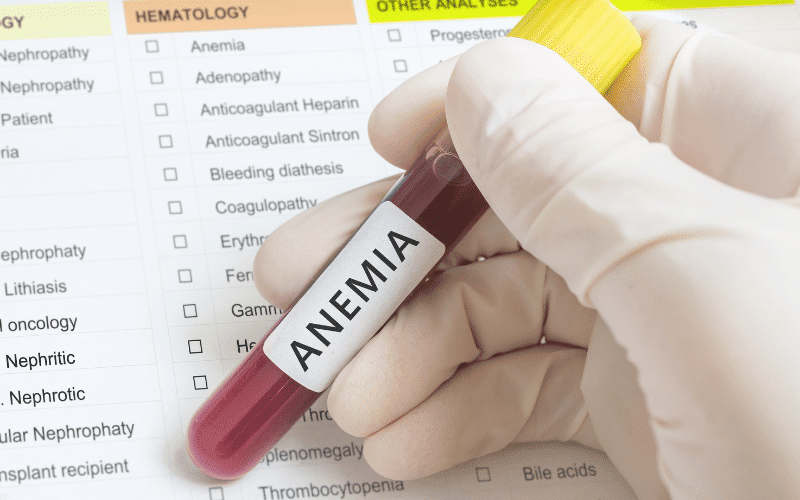FAQs about Anemia

What are the main causes of anemia?
The primary causes of anemia include blood loss, decreased red blood cell production, and increased red blood cell destruction. Specific causes can range from nutritional deficiencies and genetic disorders to chronic diseases and infections.
How is anemia diagnosed?
Anemia is typically diagnosed through blood tests, such as a complete blood count (CBC). It measures the number of red blood cells and hemoglobin levels. Additional tests may be necessary to determine the underlying cause of anemia.
Can anemia be cured?
The curability of anemia depends on its cause. Some types of anemia can be cured with proper treatment and supplementation. However, other types of anemia, like those resulting from genetic disorders, may require ongoing management and monitoring.
What are the common symptoms of anemia?
Common symptoms of anemia include fatigue, weakness, pale skin, shortness of breath, and dizziness. Depending on the type of anemia, additional symptoms, such as frequent infections or developmental delays, may also be present.
Can diet help prevent or treat anemia?
A well-balanced diet can help prevent certain types of anemia caused by nutritional deficiencies, such as iron-deficiency anemia. Including iron-rich foods (e.g., red meat, beans, lentils, and leafy greens), Vitamin B12 foods (e.g., animal products and fortified cereals), and folic acid-rich foods (e.g., fortified grains, citrus fruits, and leafy greens) can help maintain healthy red blood cell production. In some cases, dietary changes may not be sufficient, and supplementation or medical treatment may be necessary.
Conclusion
Understanding the different types of anemia and their underlying causes is essential to managing this common blood disorder effectively. Regular medical care, early diagnosis, and appropriate treatment are crucial to managing symptoms, preventing complications, and maintaining overall health for individuals affected by anemia.